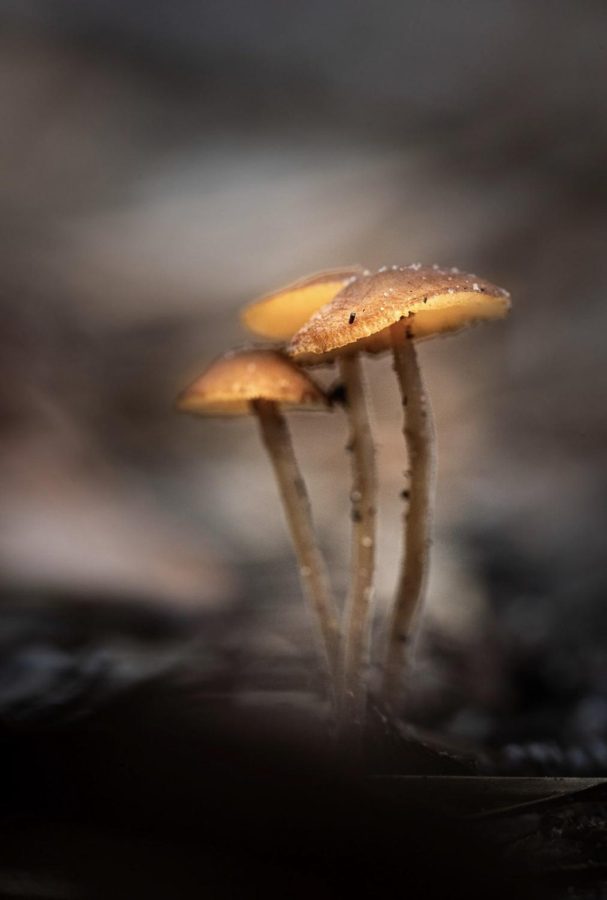Psychedelic Drug Usage in Mental Health Treatment Should be Normalized
There is plenty of research to support the benefits of psychedelic drugs. This research has likely contributed to the recent legalization of some psychedelics, such as mushrooms, which Colorado most recently legalized in early November. Skeptics believe that these drugs are harmful, a belief which can be traced back to the 1970s War on Drugs. However, as research has shown, psychedelic drugs are relatively harmless compared to drugs like alcohol and tobacco, two things that society has only deemed “harmless” due to how economical and normalized they are.
In order to better understand why some drugs are being legalized, we have to start looking at the research of individual drugs instead of grouping drugs as a whole.
In early November, Colorado passed a proposition to allow regulated use of psychedelic mushrooms. Possession of psychedelic drugs for people over 21 has been decriminalized, and allowed for the legalization of limited use of psychedelic drugs. Proposition 122 passed with 53 percent of Colorado voters supporting the initiative. Denver, in 2019, became the first U.S. city to decriminalize psilocybin.
The new proposition titled “Natural Medicine Health Act of 2022” only allows for the use of psilocybin at state-regulated centers — retail sales are not allowed and use of psychedelics are prohibited in public, schools or while operating a vehicle.
In recent years, there have been violent and deadly acts that have been blamed as part of a mental health crisis by politicians. 1 in 5 Americans suffer from a diagnosable mental illness. However, with little to no help to solve this issue, Colorado has taken it upon themselves to address this, believing that a turn to natural medicine could improve their citizens’ lives.
The document explains that “Colorado’s current approach to mental health has failed to fulfill its promise. Coloradans deserve more tools to address mental health issues, including approaches such as natural medicines that are grounded in treatment, recovery, health and wellness rather than criminalization, stigma, suffering and punishment.”
Psilocybin has been substantially studied recently and found to have therapeutic and anti-anxiety effects. In 2018, the Food and Drug Administration (FDA) announced psilocybin as a “breakthrough therapy.”
Even long before then, in 2006, a double-blind study examined the acute and long-term psychological effects of a high dose of psilocybin in comparison to methylphenidate, an FDA approved drug. The study found that people treated with psilocybin reported that they experienced a “mystical” feeling, which contributed, long-term, in positive changes in attitudes and behavior.
In February of this year, Johns Hopkins, an institution dedicated to helping uncover the effects of psychedelics with $17 million in funding, noted in a study that psilocybin treatment for major depression was effective for up to a year for most patients.
In the first study, researchers showed that treatment with psilocybin was effective in adults for a month. A follow-up study, the one published this year in February, was conducted, in which it showed the effectiveness in a year.
Back in 2020, Johns Hopkins Medicine published a breakthrough study that showcased how two doses of psilocybin, along with supportive psychotherapy, resulted in rapid and large reductions in depressive symptoms.
Another important argument for the legalization of psychedelics is how the drugs will benefit the economy. Standard or traditional mental health treatments are not working. The mental health crisis costs the global economy $1 trillion a year. Money contributing to these standard treatments is a waste, especially since these treatments or medicines do not have long-term effects on people.
In January 2022, it was examined that the market for psychedelic substances is projected to grow from $2 billion in 2020 to $10.75 billion by 2027. By saving money from not using traditional and non-effective treatments and legalizing a drug that is easily accessible and has proven effects long-term, this would help the economy substantially, which is a concern for most Americans aside from mental health. It is important to note that taking these drugs, like all drugs, can have risks. Without guidance and regulation, drugs can be dangerous as their effects vary from individual to individual. However, under regulation, psilocybin is proven to have extraordinary effects and positive experiences for people seeking an alternative to standard medicine.
Colorado and other states that are in the process of legalizing psychedelics will set the tone for the rest of the nation, depending on the area. My hope is that people become aware of the positive effects of psychedelics, rather than assuming that all drugs are intrinsically bad.
Ally Dugan, FCRH ’23, is a communications and culture major from West Chester, Penn.













































































































































































































